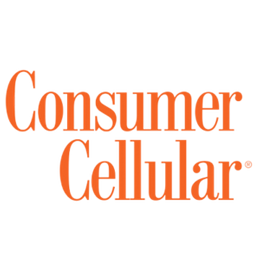Avoid Bill Shock and Start Saving on Wireless Service
Not all plans and providers are the same

(Editor's note: This content is sponsored by Consumer Cellular.)
As a retiree on a fixed income, Janet did her homework to find the wireless service that made sense for her budget. After hours of painstaking research seeking out the best deal, she settled on what seemed like a pretty straightforward, affordable monthly plan.
But when her bill arrived, she says, the numbers "just didn't add up." Janet had been hit with a case of "bill shock," an all-too common condition which occurs when a cellphone provider tacks on extra fees or suddenly raises prices, often without warning.
Many wireless providers have an a la carte menu of items that trigger additional charges, and you may not know they exist until they show up on your bill. Here's what to be on the lookout for to make sure your phone bill doesn't catch you by surprise:
Check the Fine Print
In addition to your monthly service, your wireless charges will include certain taxes and fees which are required by law, such as state and local taxes, the 911 fee used for emergency services, and payment into the Federal Communication Commission's Universal Service Fund which helps provide universal access to telecommunications services across the U.S.
But it's the pesky, less obvious fees that can drive your costs up in unexpected ways. Watch for things like:
- Administrative Charges: Administrative fees are added to your bill for a variety of operating expenses your carrier incurs in the normal course of doing business. However, these have received scrutiny lately as major carriers have been quietly increasing them to the tune of millions of dollars in additional revenues.
- Overage Fees: If you go over the minutes, text messages or data that your monthly plan allows, many carriers tack on an additional charge for every extra call you make or bit of data you consume.
- The Limits of “Unlimited:” An “unlimited” data plan may seem like a great value to avoid overage fees, but the truth is more complicated. In reality, if you use too much data in a month, your carrier may drastically slow your connection down. If you go over your plan’s cap, your data might be so slow that you won’t be able to do very much online, meaning you’re not exactly getting what you think you’re paying for.
- Activation and Device Upgrade Fees: You may be excited about getting a new phone, or upgrading to a new one. But be aware that your carrier may charge you $30 or more to connect to their service.
Change for the Better
Every little extra fee adds up to a great big phone bill. If your carrier's fees are getting too high, it's time to shop around.
Not long after her first taste of bill shock, Janet found her antidote by switching to Consumer Cellular. It's a 100% U.S.-based company that has earned a reputation for straightforward billing including free activation, no upgrade charges and no overage fees.
Janet now enjoys all the talk, text and data she needs for around $20 a month — with no unpleasant surprises on her bill. And that's just the beginning: Consumer Cellular has actually added more minutes, texts and data to its no-contract monthly plans without increasing prices for 11 straight years.
Cellular competition is fierce, so shop around and be sure to ask about added fees before you commit to a carrier or a wireless plan. Take it from Janet: you simply won't find a better remedy for bill shock than that.

Consumer Cellular is a top-rated wireless carrier providing no-contract cellphones and service plans primarily to the 50+ demographic.

